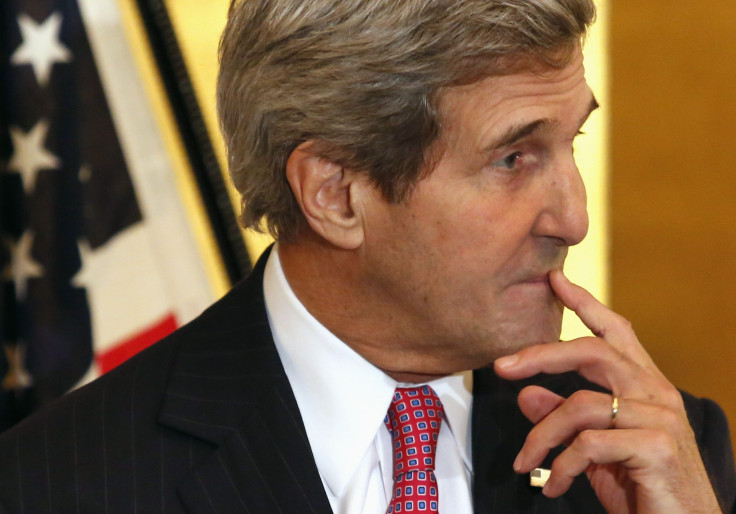The End Of The Monroe Doctrine? John Kerry Calls For Closer Ties With Latin America On Basis Of Equality, But Warns Cuba Must Speed Up Reforms

Is this the end of American paternalism? In a speech on Latin America at the Organization of American States in Washington on Monday, U.S. Secretary of State John Kerry praised some of the slow reforms made by Cuba, but urged the Havana government of President Raúl Castro to accelerate such changes and move closer towards democracy.
Kerry also said the time was ripe for the United States to write a new chapter in its relationship with all of Latin America, one based on equality and unity. The secretary, formerly the chairman of the Senate Foreign Relations Committee, has always favored a more conciliatory attitude towards the Communist-ruled nation just 90 miles from the shores of Florida and declared that increased dialogue would open the way to democracy in Cuba. Kerry also explained that the U.S. needs to be “more creative, more meditative and keep on adapting its policies” with respect to Cuba.
However, given that Havana remains under the control of a repressive regime, Kerry cautioned that “such changes should not blind us to the authoritarian regime Cubans are put under every day.” Kerry warned Havana that if it failed to expand the freedoms of its citizens, “the 21st century will leave Cubans behind.” “We look forward to the day -- and we hope it will come soon -- when the Cuban government embraces a broader political reform agenda that will enable its people to freely determine their own future,” Kerry said.
Since the beginning of President Barack Obama’s presidency, the U.S. eliminated restrictions on Cuban-Americans seeking to visit their homeland, raised the limit on remittances and also allowed trips to the island for cultural, educational and religious reasons. “We have a compromise with the exchange, because we believe our citizens to be the best ambassadors of our values,” said Kerry. “They are ambassadors of our ideals, of our values, of our beliefs.” While this friendlier approach has been praised by some Cubans in the U.S., the decision by the State Department to keep Cuba on its list of countries that have “repeatedly provided support for acts of international terrorism” (Sudan, Iraq and Iran are the others on the list), has disappointed many others.
Kerry also announced the end of the Monroe Doctrine, which for almost two centuries encouraged an interventionist role in Latin America by the U.S. Kerry called the doctrine obsolete and stated it was no longer a necessary policy. “The relationship we want to promote is not the U.S. establishing when and how we should intervene in other American states. We aspire for all countries to see us as equals, to share responsibilities and collaborate in security issues,” he said.
The economic boom and the emergence of democracies in Latin America have inspired the U.S. to view the region not as a source of problems, but as a center of new possibilities. Kerry, in recent visits to the region, has emphasized the interest of the U.S. to sign agreements based on equality on issues like education, employment, security and climate change. These are the greatest challenges faced by the region, Kerry said in his speech, asking all countries for “courage, [the] will to change and a much deeper cooperation.”
On other topics, Kerry understood the "understandable concerns" that some Latin American leaders harbor over revelations made by National Security Agency defector Edward Snowden about surveillance operations undertaken by Washington in regional countries like Brazil and Mexico. Dilma Rousseff, the president of Brazil, has already postponed a state visit to the U.S. over reports that the NSA spied on her government and the state oil company, Petrobras.
Kerry concluded his speech by encouraging the Western Hemisphere to cooperate on energy issues. “If we harness the power of wind in Mexico and the biomass in Brazil, the sunshine in Chile and Peru, the natural gas in the United States and Argentina, then the enormous benefits for local economics, public health, and of course climate change mitigation could reach every corner of the Americas and beyond,” he said.
© Copyright IBTimes 2024. All rights reserved.





















